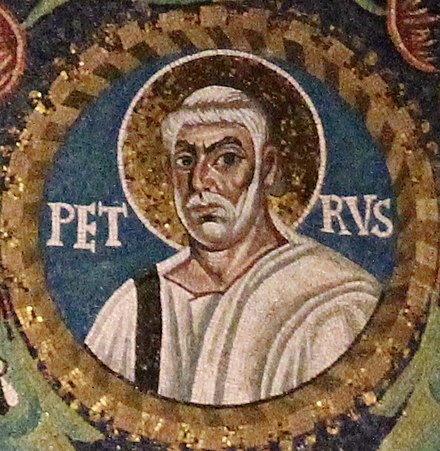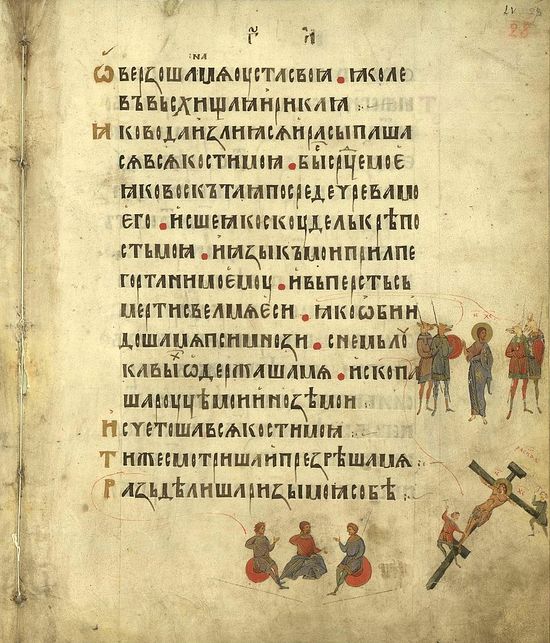While I think it is true, as I have argued before, that the Greek church never considered the events of 1054 as marking any kind of definitive break with the Latin West, this does not mean that the theological writers at the time ignored the sudden and dramatic juxtaposition of Eastern and Western liturgical, ritual, and cultural practices. Indeed, almost the reverse is true: the decades following 1054 witnessed a flourishing of a genre that has been termed the “Byzantine lists,” essentially short treatises outlining a series of objectionable practices that were common (or were believed by the authors to be common) among Latin Christians. Typically inspired by the letter of Michael Cerularius to Peter of Antioch, which added several complaints about the Latins to a list of issues that were under more active discussion between the two sides in 1054, these lists commonly discussed issues that pertained to liturgical or ritual practice. Greek Christians regularly complained that their Latin confrères did not celebrate baptism correctly, did not fast from the correct foods or with sufficient rigor, and did not sing the word “alleluia” during church services at the correct times of the year, among other problems.

The primary study of the genre as a whole remains Tia Kolbaba’s monograph The Byzantine Lists: Errors of the Latins, published in 2000 [1]. Kolbaba maintains that the composition of these lists was fundamentally a project of Byzantine cultural consciousness, a way of emphasizing (or constructing) the unity, antiquity, and correctness of Eastern Roman practice by way of comparison to the “other,” in this case, the Latins. These lists were intended as emotional appeals to a broad Greek audience, and were somewhat low-brow in both style and content: theologically difficult issues like the filioque are presented side-by-side with complaints that Latin bishops wear silk rather than woolen robes, with no effort to rank the comparative importance of the various complaints.
Given Kolbaba’s argument that these lists of complaints are fundamentally inward looking, focused more on the Eastern Romans than the Western ones, it is especially interesting that one of the earliest examples of the genre was not written within the oikoumene at all, but rather under the political authority of the Kievan Rus’. Ephraim, the metropolitan of Kiev from around 1055 to the early 1060s, was an ethnic Greek recently transplanted in the eastern Slavic territory when he authored a list of twenty-eight distinct complaints against the Latin Christians [2]. Most of these complaints concern topics that are familiar to students of the East-West conflict: the filioque, the use of azymes (unleavened bread) in the celebration of the Eucharist, the practice of fasting on the Sabbath (Saturdays). Indeed, the complaints in Ephraim’s treatise echo the issues raised in the 1054 conflict so completely that he either had received a thorough report of the events or was still personally resident in Constantinople during the time of the Humbertine legation.

Ephraim, however, was also cognizant of his new cultural context, and Igor Čičurov, who first printed an edition of the text, points out instances where Ephraim used words or referenced topics that would have been far more familiar to a Slavic audience. For example, Ephraim attributes the sacramental use of azymes to the Vandals, noting that this group of people are now called the “Nemitzioi” (“τῶν νῦν Νεμιτζίων καλοθμένων”) a native Slavic term for Germans (i.e., non-Slavs): “немитции” or “немцы” [3]. Furthermore, Ephraim deviated from his literary model, Michael Cerularius, in accusing the Latins of not giving baptizands the names of saints, but instead the names of various animals (lions, bears, leopards, etc.) [4]. This complaint, Čičurov notes, is not made in any list of complaints against the Latins composed within the Eastern Roman Empire itself. Instead, it is only from the Slavic context, where the practice of retaining a non-Christian name after baptism was common, that this issue was raised [5].
This complaint brings us back to Kolbaba’s thesis, that the so-called Byzantine lists had more to do with policing cultural practice and ritual purity within the Eastern Christian world than in correcting behavior in the West. Constantinopolitan authors of similar works, although they surely would have objected to this naming practice, apparently did not see the need to mention it among their complaints. In Ephraim’s case, however, we see an ethnic Greek confronted with the very foreign (to him) practice of retaining a non-Christian name. His attack on the Latin practice would equally have served as a critique of the princely families of the Rus’ by whom he was surrounded. We are left, in the end, with a strengthening of Kolbaba’s central argument: “[…] the intended audience was not Latin. There are anti-Latin works which were intended to convince Latins, but the lists are not among them” [6] Instead, we should see Ephraim’s work, at least in part, the effort of a Greek clergyman to enforce the norms of Constantinopolitan orthodox theology and practice in the Eastern Christian hinterland.
Nick Kamas
PhD in Medieval Studies
University of Notre Dame
[1] Tia M. Kolbaba, The Byzantine Lists: Errors of the Latins (Urbana and Chicago, University of Illinois Press, 2000). See especially chapter 1, pp. 9-19, for the argument on the purpose and context of the lists.
[2] For some biographical details on Ephraim of Kiev, see Gerhard Podskalsky, Christentum und Theologische Literatur in der Kiever Rus’ (988-1237) (München: C.H. Beck’sche Verlagsbuchhandlung, 1982), 285-286. Further details, including a helpful bibliography, are in А. В. Назаренко, “Кое-что о Двух Русских Митрополитах XI в. Ефреме Киевском и Ефреме Переяславском” Древняя Русь: Вопросы Медиевистики 75.1 (2019): 87-90.
[3] “Антилатинский Трактат Киевского Митрополита Ефрема (ок. 1054/55-1061/62 гг.) в Составе Греческого Канонического Сборника Vat. Gr. 828,” Вестник ПСТГУ 19.3 (2007): 127. This publication in Russian is a revision of an earlier German article: I. Čičurov, “Ein antilateinischer Traktat des Kiever Metropoliten Ephraim,” Fontes Minores X (Frankfurt am Main, 1998): 319–356. The edition of the Greek text appears only in the German version.
[4] Traktat 18, in Čičurov, “Ein antilateinischer Traktat,” 344.
[5] Чичуров, “Антилатинский Трактат,” 126.
[6] Kolbaba, Byzantine Lists, 28.
